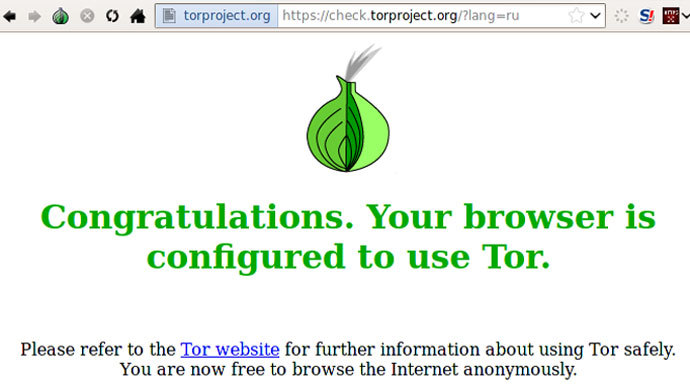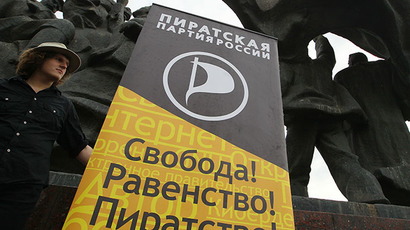Russia’s FSB mulls ban on ‘Tor’ online anonymity network

The head of the Federal Security Service (FSB) has personally ordered preparations for laws that would block the Tor anonymity network from the entire Russian sector of the Internet, a Russian newspaper reported.
FSB director Aleksandr Bortnikov announced the initiative at a recent session of the National Anti-Terrorism Committee, saying that his agency would develop the legislative drafts together with other Russian law enforcement and security bodies, the widely circulated daily Izvestia reported.
The news was disclosed after the Russian civil movement ‘Head Hunters’ wrote a letter to the FSB with a request to block Tor, as it is one of the favorite software tools for distributors and users of child pornography. The FSB replied that the request was directed to the wrong body, as crimes against public health and morals fall under the Interior Ministry’s jurisdiction. The agency, however, informed the activists about possible future changes to the legal code.
The FSB official said that the agency initiated the move as internet anonymizers were used by weapon traffickers, drug dealers and credit card fraudsters, giving the FSB an obvious interest in limiting the use of such software.
At the same time, an unnamed source told the newspaper that not all Russian security specialists welcomed the idea, as various criminals often overestimated the protection provided by the Undernet, acted recklessly and allowed themselves to get caught. The blocking would require the development of some new methods of search and control in new anonymity networks that would appear soon after the Russian audience loses access to existing ones, the source noted.
The head of the Head Hunters group, Sergey Zhuk, also said that in his opinion, total blocking was not a very good idea and that he personally would prefer the networks’ owners be compelled to cooperate. At the same time, the activist said that the fact that Tor contains the largest child porn archives on the planet was a sufficient condition for demanding it be blocked. He added that if Tor is eventually outlawed in Russia this would not be the fault of the country’s legislators, politicians or activists, but solely the fault of stubborn owners of Tor.
The director of the Safe Internet League – a voluntary censorship group that unites several Russian ISPs – told reporters that his organization supported the idea to outlaw Tor, but added that this should be done after all pedophiles, perverts, drug dealers “and other creeps” are disclosed, caught and jailed.
Lower House MP Ilya Kostunov noted that the problem was important but doubted that it was technically executable. “As far as I know, it is impossible to block Tor,” Kostunov said. “The network re-tunes quickly, switches to different hubs and starts working again.”
The Tor Project administration also said that the blocking of the system was extremely difficult, adding that even Tor’s own specialists could not control the information flowing through their servers or identify users.
Russian law enforcers are not the only specialists concerned by Tor’s popularity and the seedy segment of its users.
Earlier this month security experts worldwide accused the FBI and NSA of exploiting a flaw in the Firefox browser to identify and potentially monitor Tor subscribers. The move led to the arrest of the alleged founder of the company Freedom Hosting, Eric Eoin Marques, over charges of facilitating child porn. The arrest apparently led to the shutdown of thousands of Undernet sites that comprised a large part of Tor’s total content.














